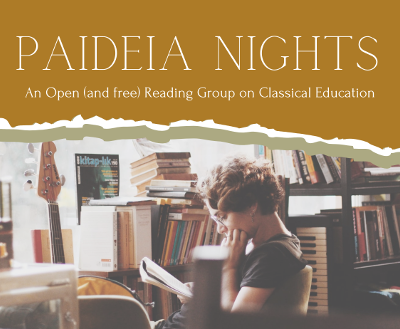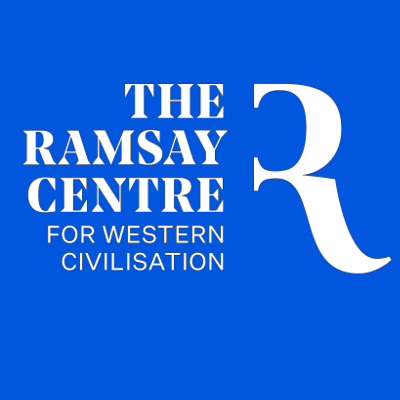Denise O'Hagan
As a poet and editor, this is a sentiment I’ve heard expressed more than once, albeit less bluntly. And I can’t help thinking that it’s a very modern question: our twenty-first century world increasingly values those activities which can be linked to tangible and financially lucrative ‘outcomes’ over others. This is reflected in turn in current trends in education, both in Australia and overseas.
Yet it wasn’t always thus; in the Ancient world, especially before writing was invented, poetry occupied a vital and respected role in public, and private, life. At a time when the only recording of events was through the spoken word, it was through sounds, memorised and handed down, that stories first existed. In short, poetry’s role was nothing less than to preserve and transmit culture, and it achieved memorability particularly through rhythm and repetition. Mnemosyne, the Greek goddess of memory and mother of the Muses, from whom the English word ‘mnemonic’ is derived, remains one of the earliest and most enduring embodiments of memory.
It’s no accident, therefore, that epic works across ancient cultures were composed poetically, from The Descent of Inanna (Sumeria), the Epic of Gilgamesh (Mesopotamia) through to Homer’s Iliad and Odyssey, Virgil’s Aeneid (Greece) and the Ramayana and Mahabharata (India).
The advent of writing released poetry from its primary role as a tool of remembrance to become a means of exploring other aspects of the human condition, and the tensions within it. Today, this resonates more than ever; in times of crisis, people tend to seek solace in poetry. As the American poet and teacher Gregory Orr says, during our daily lives we are often obliged to repress that which disturbs or excites us in order to stay focused on the task at hand, but ‘It’s possible to say that with poetry we pause and step aside to make a place for that disorder.’1
This is an important point. Poetry traditionally occupies a unique position, a threshold between worlds, a liminal state in which their writers are beholden to no one or anything other than expression itself. From narrative to lyric poetry, from the ode to the satire, from the epic to the limerick—poetry in all its many and varied forms offers an inexhaustible well of delight for both our minds and senses. In shedding an oblique light on us and our world, it feeds our imaginations, keeping us sensitised and alive to the subtler implications of situations. It keeps us questioning both ourselves and others, prompting us to feel things anew and making us less vulnerable to lapsing into the absorption of readymade opinions and values—a quality which lies at the heart of any healthy democracy and its educational system.
Yet in contemporary Australia, as in many other countries, education is increasingly being regarded as primarily utilitarian, and higher degrees seen as pathways to better jobs. Arts funding at all levels is being slashed, and the pursuit of an education in the arts and humanities effectively labelled as frivolous. This is a dangerously regressive attitude; an educational system which doesn’t nourish the arts and humanities as well as the sciences ultimately impoverishes itself and the society it purports to serve. But perhaps this is best illustrated rather than theorised about.
Here is a fragment from one of the world’s oldest lyric love poems, discovered on an ancient Sumerian cuneiform tablet:
Bridegroom, dear to my heart,
Goodly is your beauty, honeysweet,
Lion, dear to my heart,
Goodly is your beauty, honeysweet
You have captivated me, let me stand tremblingly before you...2
Reading even these few opening lines we are instantly transported into the distant writer’s heated inner world with its joyful and ardent celebration of love; all of a sudden, she is distant no longer and we have a very real ‘sense’ of her. The poem is mesmerising in its familiarity, a small but potent reminder of the unchanging nature of the human condition, and in this realisation we meet the very essence of the poetry—its power to instill wonder, and its ability to connect us through time and space with what is universal across all human cultures. We can extract all sorts of ‘benefits’ from reading poetry (empathy-building, communication-enhancing and so on) but ultimately, however, perhaps we come closest to the heart of the matter when we say that poetry is, simply, food for the soul.
The twelfth-century Japanese poet, Fujiwara no Shunzei, eloquently alludes to the magic of poetry when he says that a good poem ‘will possess a kind of atmosphere that is distinct from its words and their configuration and yet accompanies them. The atmosphere hovers over the poem, as it were, like the haze that trails over the cherry blossoms in spring, like the cry of the deer heard against the autumn moon, like the fragrance of spring in the flowering plum by the garden fence...’ 3
It’s important that we come to poetry (both reading and writing it) freely because we want to, not for what we may ‘get out of’ it. It is a complex, nuanced art, a mysterious blending of musical properties with image-making and thought. If defining poetry has proved elusive through the ages, its effect on us is less so. Most agree that, at its best, it’s capable of wreaking a transformation in our consciousness, and subtly polishing the lens through which we view the world.
The more we immerse ourselves in the world that poetry has to offer, the richer we will be. In terms of poetry in the classroom, introducing students to poetry is a wonderful thing, but it must be done sensitively so as not to ruin the actual experience of the poem, and with respect for the culture within which it was written and reverence for its transcendent qualities. While it is questionable whether poetry can be ‘taught’—though the craft of it can certainly be honed—what is not in question is the huge gift that poetry offers us all. Let us keep the gift alive through the ongoing appreciation of the poetic art and, of course, its practice.
1 Gregory Orr, A Primer for Poets & Readers of Poetry, WW Norton & Co. New York, 2018, p. 42.
2 ‘A Love Song of Shu-Suen’, reputedly the oldest love poem, was written in Mesopotamia, c. 2000 BC.
The World's Oldest Love Poem - World History Encyclopedia
3 Quoted in Jane Hirshfield, Nine Gates: Entering the Mind of Poetry, HarperCollins Publishers, 1997, p. 98.






